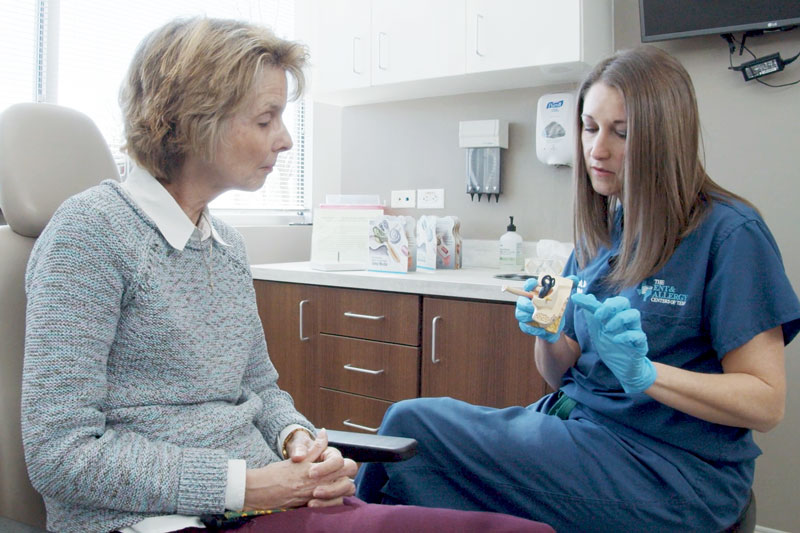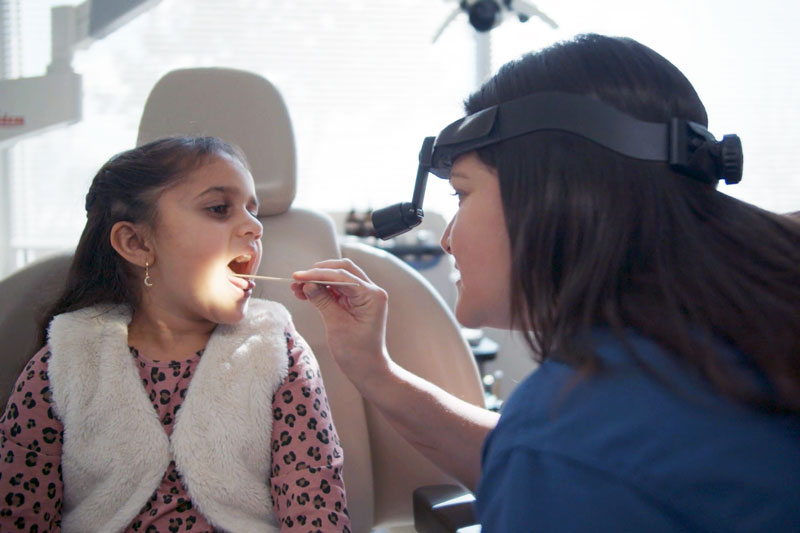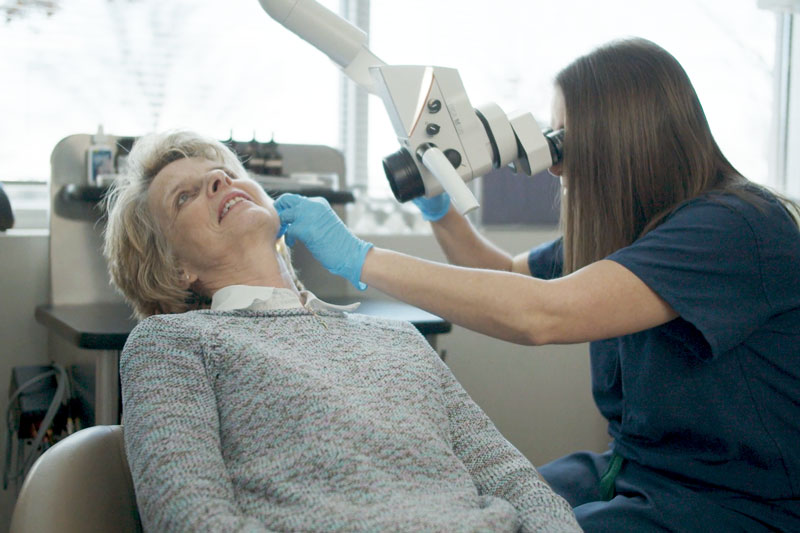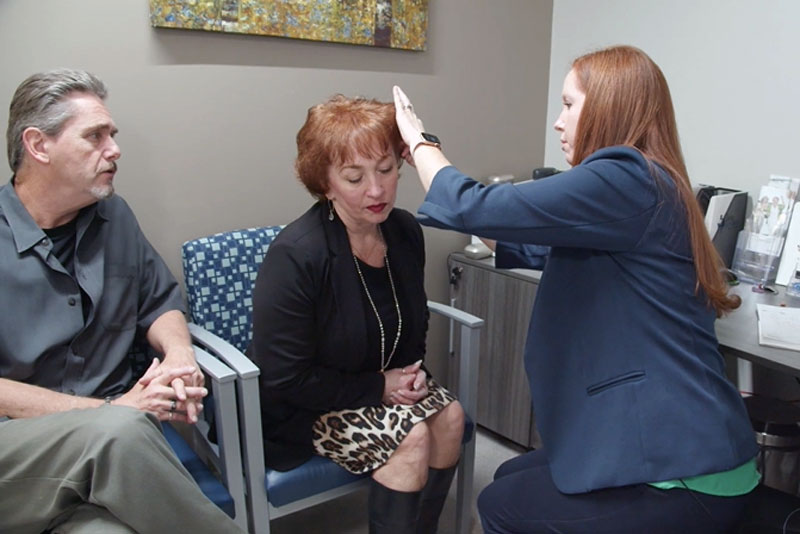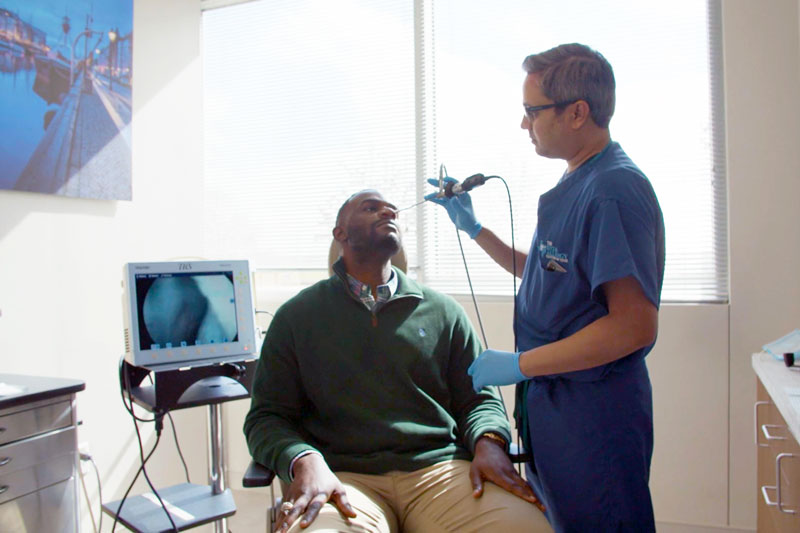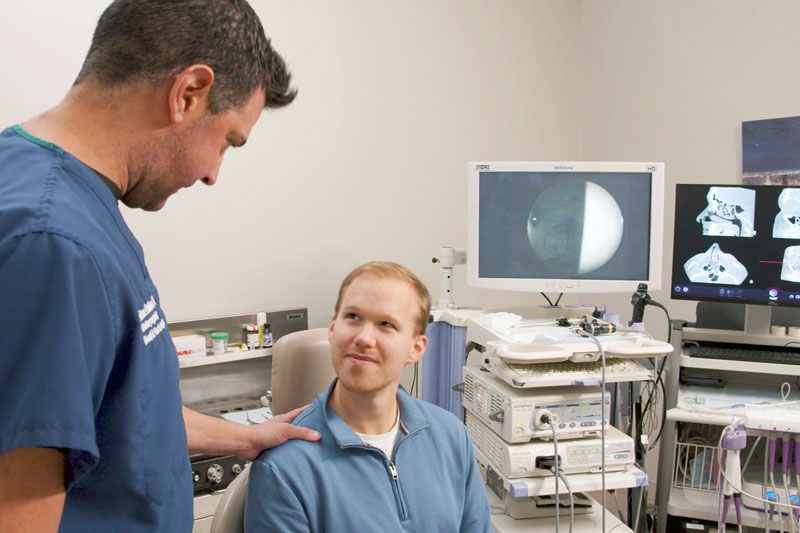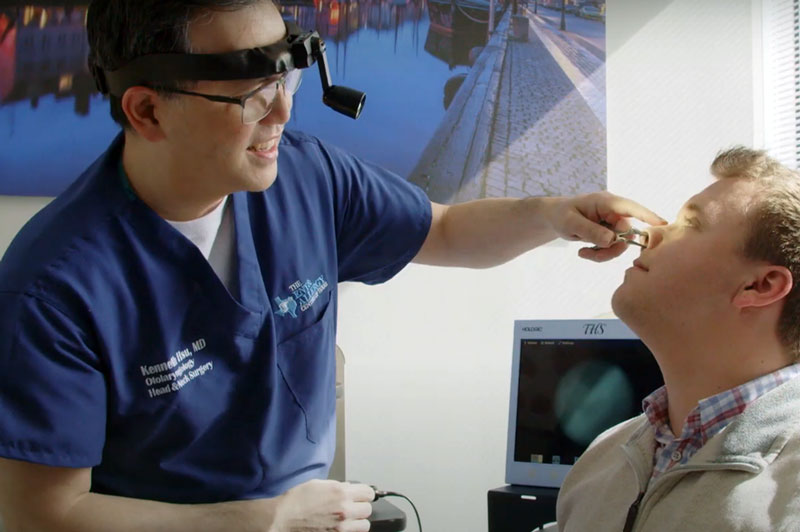Your North Texas Voice Care Expert
What are voice disorders?
Any condition that impairs your ability to speak normally is known as a voice disorder. This includes conditions such as:
- Laryngitis
- Vocal cord paralysis
- Nerve disorders that result in vocal cord spasms
- Aging voice box
- Vocal cord polyps or nodules
Common symptoms of voice disorders include hoarseness, trembling, tension, or unevenness in the voice, as well as discomfort or a sensation of a lump in the throat when speaking. The treatment of voice disorders is determined by the underlying cause and may involve speech therapy, medication, or surgical intervention.

What Are The Types of Voice Disorders?
Voice disorders are categorized into three main types: functional, organic, and neurologic.
Functional voice disorders usually result from improper vocal habits, such as incorrect pitch, volume, or rate of speech. Psychological factors, such as stress, anxiety, or depression, can also contribute to these disorders. Behavioral therapy and voice therapy are an effective treatment for most functional voice disorders.
Organic voice disorders arise from physical abnormalities in the vocal cords or other parts of the voice box. Infections, nerve damage, tumors, or growths can all be underlying causes of organic voice disorders. Surgical intervention can provide relief for many organic voice disorders.
Neurologic voice disorders are caused by issues with the nerves that control the muscles of the vocal cords. History of stroke, Parkinson’s disease, and other neurological conditions can be underlying causes of neurologic voice disorders. Speech therapy can alleviate some of the symptoms associated with neurologic voice disorders.
What Causes Voice Disorders?
Vocal cord abuse is one of the most prevalent voice issues, resulting from improper voice usage. Shouting, whispering, and frequent throat clearing exert excessive pressure and fatigue on the vocal cords, which can cause voice damage and medical conditions such as laryngitis, polyps, cysts, and vocal cord swelling.
Additional voice problems can arise from upper respiratory infections, acid reflux, and tumors. It is critical to seek the advice of an ENT specialist for appropriate diagnosis and treatment of voice disorders.
With appropriate treatment and diagnosis, most voice disorders can be successfully resolved. If you suspect that you may have a voice disorder, please schedule an appointment with one of our specialists at any of our offices.

What is Microscopic Voice Surgery?
Microscopic voice surgery is a minimally-invasive procedure available from our physicians at The ENT & Allergy Centers of Texas. This procedure works by removing abnormal growths on the larynx. These typically noncancerous growths may emerge in or near the vocal folds as a result of irritation or trauma. They can have a wide variety of causes, including vocal overuse, coughing, acid reflux and more.
Microscopic voice surgery, also known as microlaryngeal surgery can correct conditions such as speaking and breathing difficulties, voice disorders, and other conditions that affect the larynx.

How is microlaryngeal surgery performed?
Microscopic voice surgery is a minimally invasive procedure that can improve voice quality without the need for external incisions. Using a laryngoscope and an operating microscope, our skilled physicians can magnify the vocal folds to see the area while performing the procedure. With tiny instruments inserted through the laryngoscope, patients benefit from faster recovery and superior voice quality compared to traditional laryngeal surgery.
After the procedure, patients may experience some discomfort, but it can often be managed with over-the-counter pain relievers. Resting the voice is recommended for the first few weeks to allow for proper healing. Our experienced physicians provide detailed instructions for voice use limitations and after a follow-up appointment, patients are typically cleared to resume normal vocal activities.
Although complications are rare, all surgeries carry some risk. With our team’s extensive experience in microscopic voice surgery, we strive to minimize the risk of complications such as anesthesia reactions, dental damage, temporary numbness of the tongue, bleeding, infection, and less than optimal results. Contact us today to schedule an appointment.


